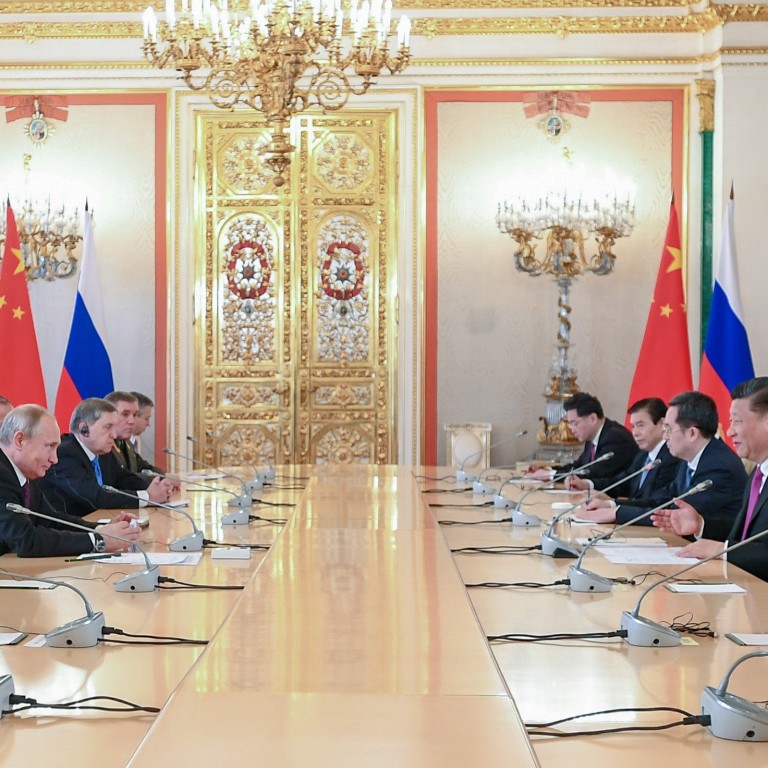
Russia keen to sell yuan bonds to deepen ties with China and further reduce US dollar dependence
- China and Russia seek to further strengthen ties amid escalating tensions with the United States after Xi Jinping and Vladimir Putin upgrade relationship this week
- At St Petersburg International Economics Forum, Russian bank claims there would be strong demand for yuan bonds
Russia is again exploring selling yuan bonds to deepen its financial market connections with China and to boost trade in yuan and roubles to counter the dominance of the US dollar.
It first considered selling a yuan bond back in 2016, and after reviving the idea last year, is revisiting the possibility as China and Russia seek to further strengthen ties amid escalating tensions with the United States.
Russia would first sell a sovereign bond in yuan and list it on the Moscow Exchange, while China could also consider selling a government bond denominated in roubles, according to Denis Shulakov, first vice-president of the state-owned Gazprombank.
“More than 15 Russian companies and banks are interested in [buying] yuan denominated bonds on the Moscow Exchange and on exchanges in China,” said Shulakov, without revealing any further details, including the progress of the plan.
More than 15 Russian companies and banks are interested in [buying] yuan denominated bonds on the Moscow Exchange and on exchanges in China
Additional government-led borrowing is necessary to raise money to fund large energy projects that would be mutually beneficial, he noted while speaking during a panel discussion at the St Petersburg International Economics Forum on Thursday.
China is Russia’s largest trading partner, while Russia is China’s largest crude oil supplier. The two countries have also made joint investments in various liquefied natural gas and natural gas projects, but most of these are financed by the equity market and state subsidies, Shulakov said.
“We don’t see much private investment [in these projects],” he said, adding that both China and Russia can leverage bond markets as an alternative funding channel to finance the multibillion-dollar long-term projects while also improving their capital market ties.
Moscow and Beijing continue to talk about establishing a new system for direct yuan-rouble payment settlements, although the project has suffered multiple delays despite rhetorical support on both sides. In bilateral trade, around 14 per cent of payments are already conducted in yuan and about 7 to 8 per cent in roubles, according to Russia’s Finance Ministry.
To cut exposure to the US dollar, the Russian central bank has been substituting the yuan for the US dollar in its foreign exchange reserves portfolio, purchasing US$44 billion worth of the Chinese currency in the second quarter of 2018, while selling more than US$100 billion. Russia held US$67 billion in yuan as of mid-2018, 15 per cent of its international reserves.
But Dina Malikov, president at the Russian Regional Development Bank, said there is “a lot to do still” if China and Russia want to significantly reduce their dependence on the US dollar.
“It would require market incentives. Most trades in China and Russia are generated by state-owned firms. That’s why governments have to spearhead the initiative,” said Malikov, adding that expansion in the trading of yuan and roubles would need to be supported by central and state-owned banks from both countries.
Another problem that could hold back stronger capital market connections is the lack of access that Russian banks have to liquid hedging instruments against foreign exchange risks, according to Igor Marich, the Moscow Exchange's managing director of money and derivatives.

